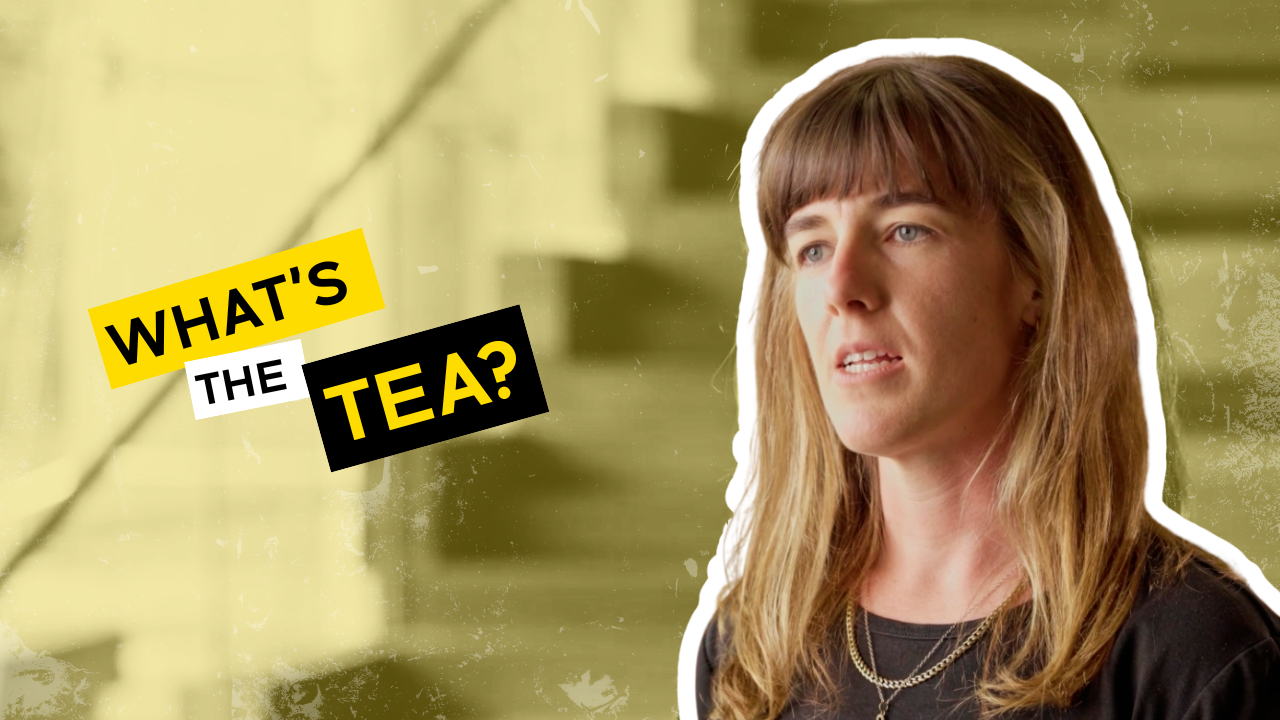Skye McGregor | Here’s your STI check, Australia

There’s no shame in having an STI or blood borne virus, so let’s have open discussions about it, to make sex not just fun, but safe.
In 2020, as Australia experienced lockdowns due to the COVID-19 pandemic, Australia’s reported STIs declined. However, there still over 90,000 notifications of chlamydia, making it the most common STI, with gonorrhoea the second most common.
So how do we know this? Don’t worry, epidemiologists aren’t peeping through your windows and taking notes! Through public health surveillance and recording, these scientists are able to collate a broad range of data about sexually transmissible infections to create better public health campaigns. Because, unfortunately if left untreated, STIs can lead to serious health complications. So how can we bring better treatment and awareness to communities to make sure they stay healthy? If you’re lucky enough to be getting lucky now that COVID restrictions have eased, there are some things you can do: use protection, have open discussions with your partners and get tested! It’s free, it’s easy and it’s relatively pain free…
In ten minutes or roughly the length of time it takes to correctly put a condom on a banana, epidemiologist Skye McGregor will bring you up to speed with Australia’s STI check up, and how you should be protecting yourself.
ABOUT 10 MINUTE GENIUS
In this sprawling digital age where a universe of information is accessible within seconds, it's easy to be paralysed by the simple question of where to begin.
Introducing: Ten Minute Genius, a series of short talks designed to create a space in which you can engage with new ideas. We have curated a collection of material scientists, philosophers and maths lovers to help you make some sense of this chaotic information vortex. And because you’re busy, all we ask of you is just ten minutes.
Transcript
UNSW Centre for Ideas: Welcome to the UNSW Centre for Ideas podcast – a place to hear ideas from the world’s leading thinkers and UNSW Sydney’s brightest minds. The talk you are about to hear forms part of the 10 Minute Genius series, a curated collection of UNSW’s thinkers, dreamers and envelope pushers helping you make some sense of the relentless information vortex in which we live. In under 10 minutes, or roughly the length of time it takes to correctly put a condom on a banana, epidemiologist Skye McGregor will bring you up to speed with Australia's STI check up and how you should be protecting yourself.
Skye McGregor: Australia, I've got the results of your STI check, you're going to want to sit down for this. It's my job to know as much as I can't about what all Australians are getting up to in the bedroom. Well, not all the details. We’rere mostly concerned with what infections were passing on to each other and what we can do to prevent this spread. I'm Dr Skye McGregor, as an epidemiologist who focuses on national surveillance of sexually transmissible infections, or STIs, and blood borne viruses so things like chlamydia, gonorrhoea, syphilis, and HIV. Who better to bring you up to speed with Australia's STIs and what we can do about them in under 10 minutes then me.
Firstly, you don't need to worry. There aren't epidemiologists like me looking outside your bedroom window with a set of binoculars collecting data. We do get our information through what's called public health surveillance though, the word surveillance often conjures fear and images of cameras tracking our every move. But when it comes to public health, surveillance is a word that should conjure feelings of community and understanding. Surveillance like the type I do on Australia sexual health uses anonymous data from large numbers of people. Certain infections and diseases in Australia are notifiable, that is when someone goes to a healthcare practitioner, gets an STI test and is diagnosed some inflammation is reported back to health departments. We call these cases that are tested, diagnosed, and reported notifications. We don't focus on individuals but rather population level trends and we use this information for good, to inform strategies to improve community health. So Australia, let's have a look at STI trends in your population in recent years.Sexually transmissible infections in Australia have been on the rise for some time, even though in 2020, we saw a slight decrease during the COVID 19 pandemic. Despite a 16% decrease on 2019, chlamydia remains the most common STI in 2020 with over 90,000 notifications. I n fact, and estimated almost one in 20 young people had chlamydia in 2020. It's important to note that in addition to notified cases, there are people in the community who don't get an STI test and therefore aren't diagnosed. So for the one in 20 young people with chlamydia, only 30% were actually tested and knew they had chlamydia. You can see how important STI testing is. Gonorrhoea was the second most common STI with more than 29,000 notifications in 2020. Infectious syphilis was less common with around 5,000 cases, but it can cause significant negative health impacts, and in general has increased considerably in recent years. So while the number of notifications of chlamydia, gonorrhoea and syphilis decreased in 2020, it's really important to note that untreated, all these infections can lead to serious complications. So why do we think STI’s decreased in 2020 after years of increases?
One. Lockdown meant people were socialising less and having less sex, particularly sex with casual partners. Presumably, this means less transmission of STIs. Two.h=Health service access changed. With the availability of telehealth and restrictions on accessing care showing any signs of COVID-19, this meant less people saw it face to face care and we know testing declined. In 2020, the number of people getting a chlamydia or gonorrhoea test declined by 11% in Australia. Three. Travel pretty much came to a halt. This means less movement of cases of STIs in and out of and around Australia. So, the pandemic has likely had a mixed impact it has led to reductions in the number of cases that have been detected nationally. However, it's also led to reductions in testing. The decreases we did see weren't necessarily experienced equally though, for example, gonorrhoea didn't decrease in remote areas or among Aboriginal and Torres Strait Islander peoples. This may relate to differences in COVID restrictions across Australia in 2020. So Australia, in some settings, you've been testing positive more often for some STIs and some you've either had fewer cases of it or you just haven't been getting tested for them as much. Like I said, it's complicated.
So what do we do with a complex STI report card like this? Well, we can't assume that just because cases have decreased, they're no longer a problem. We need to sustain and enhance access to appropriate prevention and treatment to ensure all populations can access the care they need to stay healthy. The other thing we can do to improve Australia's chances of eliminating STIs is normalised sexual health. So if you're lucky enough to be getting lucky, now that COVID restrictions have eased, there are some things you can do.
Use condoms, talk to sexual partners about sexual health, and get tested for STIs and blood borne viruses. Yes, Australia, I mean, all of them. It's free. It's easy, and it's pretty pain free. Pee in a jar, or give a quick blood sample. There's no shame in having an STI or blood borne virus. So let's have open discussions about it to make sex not just fun, but safe. The best part is, then you can get back amongst it, reassured that you're engaging in safe sex with whoever consensually takes your fancy. And remember, I'll be watching. Not really, but I will be looking at the data to help fight the good fight against STIs.
UNSW Centre for Ideas: Thanks for listening. For more information visit centreforideas.com and don't forget to subscribe wherever you get your podcasts.

Skye McGregor
Dr Skye McGregor is an epidemiologist at the Kirby Institute at UNSW Sydney. Her work focuses on surveillance and prevention of sexually transmissible infections and blood borne viruses. She leads production of the national sexually transmissible infections and blood borne viruses annual surveillance reports for Australia. Skye is also involved in research that focuses on development of novel public health surveillance measures, and the evaluation of public health programs in Australia, including HIV prevention and treatment, HPV vaccination, and the national syphilis response.




